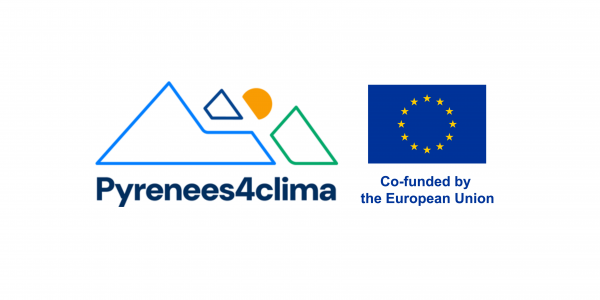The Ebre Observatory participates in the PYRENEES4CLIMA project, which brings together 40 partner entities with the aim of increasing resilience in the Pyrenees through cooperation and the application of specific measures and actions to adapt to climate change in a wide range of topics.
 Our role in this project, which has officially started, will be, first, to study the impact of climate change on irrigation demand and, second, to help irrigators better plan the management of water resources by making estimates of irrigation demand for each season, using seasonal forecasting techniques. This is one of the many climate change adaptation measures that will be developed within the framework of the project.
Our role in this project, which has officially started, will be, first, to study the impact of climate change on irrigation demand and, second, to help irrigators better plan the management of water resources by making estimates of irrigation demand for each season, using seasonal forecasting techniques. This is one of the many climate change adaptation measures that will be developed within the framework of the project.
Approved by the European LIFE Program in June 2023, the project is led by the Pyrenees Working Community (CTP) through the Pyrenean Observatory of Climate Change (OPCC) and has a budget of almost 20 million euros and a development period of 7.5 years. The development of the Pyrenean Strategy for Climate Change (EPiCC) is the main objective of the project and aims to make the Pyrenees a resilient territory to climate change by 2050.
The project consortium includes seven competent territories in the field and 41 external beneficiary entities of different types, including applied research centers, universities, specialized public companies, associations, companies, and foundations. The CTP-OPCC leads this project by directly coordinating and managing governance and communication tasks.
The EPiCC has a systemic approach focused on systems such as climate, resilient natural spaces, population and territory, adapted mountain economy and governance, and defines 72 specific actions to implement. The Pyrenees is a mountainous bioregion especially vulnerable to the effects of climate change, and the EPiCC seeks to address these challenges through cross-border climate change adaptation action, also integrating some mitigation actions.
The kick-off meeting, in which round tables and working groups related to the different work packages were organized, took place on January 23 and 24 in Jaca, and represents the starting point of the project at an operational and political level.

